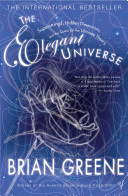Why Nothing Can Go Faster Than the Speed of Light
Einstein's equation gives us the most concrete explanation for the central fact that nothing can travel faster than light speed. You may have wondered, for instance, why we can't take some object, a muon say, that an accelerator has boosted up to 667 million miles per hour—99.5 percent of light speed—and "push it a bit harder," getting it to 99.9 percent of light speed, and then "really push it harder" impelling it to cross the light-speed barrier. Einstein's formula explains why such efforts will never succeed. The faster something moves the more energy it has and from Einstein's formula we see that the more energy something has the more massive it becomes. Muons traveling at 99.9 percent of light speed, for example, weigh a lot more than their stationary cousins. In fact, they are about 22 times as heavy—literally. (The masses recorded in Table 1.1 are for particles at rest.) But the more massive an object is, the harder it is to increase its speed. Pushing a child on a bicycle is one thing, pushing a Mack truck is quite another. So, as a muon moves more quickly it gets ever more difficult to further increase its speed. At 99.999 percent of light speed the mass of a muon has increased by a factor of 224; at 99.99999999 percent of light speed it has increased by a factor of more than 70,000. Since the mass of the muon increases without limit as its speed approaches that of light, it would require a push with an infinite amount of energy to reach or to cross the light barrier. This, of course, is impossible and hence absolutely nothing can travel faster than the speed of light.
Notes:
Because its mass will become infinite.
Folksonomies: physics speed of light relativity
Taxonomies:
/science/physics (0.500822)
/travel (0.466912)
/science/phyiscs/atomic physics (0.314419)
Keywords:
light speed (0.999587 (negative:-0.292102)), percent (0.676616 (negative:-0.266133)), muon (0.622667 (positive:0.140874)), hour—99.5 percent (0.615868 (neutral:0.000000)), muon increases (0.596725 (negative:-0.322572)), concrete explanation (0.580606 (positive:0.647650)), 99.999 percent (0.579287 (neutral:0.000000)), central fact (0.562087 (neutral:0.000000)), light-speed barrier (0.554915 (neutral:0.000000)), stationary cousins (0.550872 (neutral:0.000000)), Mack truck (0.536331 (neutral:0.000000)), Einstein (0.529448 (negative:-0.099883)), light speed—and (0.528894 (neutral:0.000000)), energy (0.478989 (positive:0.512783)), mass (0.461410 (negative:-0.286854)), push (0.420190 (positive:0.346562)), factor (0.402017 (negative:-0.221835)), Muons (0.368560 (negative:-0.214196)), instance (0.367305 (negative:-0.315769)), equation (0.362180 (positive:0.647650)), accelerator (0.358494 (neutral:0.000000)), masses (0.354087 (negative:-0.597090)), particles (0.353866 (negative:-0.597090)), bit (0.353774 (negative:-0.659003)), miles (0.353547 (neutral:0.000000)), times (0.352793 (neutral:0.000000)), efforts (0.351474 (negative:-0.627610)), rest (0.350469 (negative:-0.597090)), limit (0.350389 (negative:-0.244044)), Table (0.350025 (negative:-0.597090))
Entities:
Einstein:Person (0.875599 (positive:0.142615)), 99.9 percent:Quantity (0.875599 (neutral:0.000000)), 667 million miles per hour:Quantity (0.875599 (neutral:0.000000)), 99.99999999 percent:Quantity (0.875599 (neutral:0.000000)), 99.999 percent:Quantity (0.875599 (neutral:0.000000)), 99.5 percent:Quantity (0.875599 (neutral:0.000000))
Concepts:
Special relativity (0.944357): dbpedia | freebase | opencyc
Light (0.783275): dbpedia | freebase | opencyc
Electromagnetic radiation (0.756301): dbpedia | freebase | opencyc
Photon (0.746131): dbpedia | freebase
Albert Einstein (0.707820): dbpedia | freebase | yago
General relativity (0.706156): dbpedia | freebase | opencyc
Speed of light (0.673306): dbpedia | freebase | opencyc
Time dilation (0.661475): dbpedia | freebase





